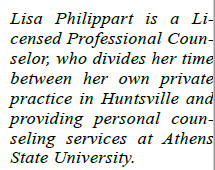The Types of Liars
 By: Lisa Philippart
By: Lisa Philippart
Everybody lies. It doesn’t matter who you are, it is impossible to come across a human being who doesn’t lie. Lies can be trivial or hurtful or serious. Lying can deeply injure relationships. Finding out if someone has lied to you is as easy as checking on little things stated, a person’s sentence structure, body language, and even tone of voice. The definition of a lie is “an intentionally false statement.” In my last article, we looked at the types of lies — the lies spoken for self-preservation, out of habit, in error, etc. So, just as there are different types of lies, there are different types of liars. For some people, compulsive lying could be a symptom of a personality disorder. Those who falsely brag about themselves may not just be “embellishers,” but rather dealing with a narcissistic personality disorder or low self-esteem. And then there are the liars who lie to evoke pity or sadness. For our purposes today, I have identified 6 types of liars.

The compulsive liar lies for several reasons. However, you can always find out if they are lying…their stories don’t usually add up. The compulsive liars are usually obvious and display classic lying behaviors, such as avoiding eye contact, sweating, or tripping over their words or rambling. There are two kinds of compulsive liars — narcissistic liars and habitual liars. Narcissistic liars usually have a narcissistic personality disorder. These people make up grand stories centered on themselves. They are also prone to embellishment. Narcissistic liars make themselves out to be the stars or heroes, no matter what the situation. Habitual liars constantly lie, or lie most of the time. For them, lying has become a regular habit, and they see no harm in doing so.
Pathological liars lie as a response to any stimuli. These folks are excellent liars because they lie constantly and make up stories so unnecessarily and often, that it becomes extremely difficult to distinguish the truth from false statements. Unlike the compulsive liar, the pathological liar is nearly impossible to catch in the act. Pathological liars know how to play the eye contact game. When lying, instead of looking away, they look directly at your face. These liars use lying as a defense mechanism, often to avoid something traumatic that has happened in their lives, or to protect themselves when a situation goes bad.

Sociopathic liars lack empathy. They don’t care if the lies they state impact others negatively or even cause harm. These liars can be narcissistic and super charming, as they are master manipulators. They tell you fictional stories to get you to do what they want, whenever they want it. Being the target of a sociopathic liar will likely feel horrible because it will conflict with your morals and your sense of right and wrong. Sociopaths are excellent actors as they sway you to see things their way so you will give them what they want. For example, if you are not comfortable with something, they will likely not care, but will certainly act as if they do. These liars are extremely dangerous to your emotional and mental health.

White liars often mix the truth with lies. They do it so that when people catch them at it, they tend to believe the white liars didn’t mean to deceive, and were probably confused themselves. However, sometimes people tell white lies when they are trying to protect someone from the truth if it is too hurtful or damaging.
Careless liars are quite unique! They lie all the time and don’t much care about morals and ethics. Most careless liars are aware of their dishonesty since they don’t put in much thought about the lies and are generally sloppy. If you know some careless liars, you may want to confront them about their lies. It is most likely that they are aware of exactly what they are doing. But, at the same time, it doesn’t mean that they will change themselves or even admit the lies.
Occasional liars cover most everyone. While it is not something to be applauded or accepted, one of the better things about occasional liars is that this is not a regular thing. They often feel guilty, will admit their lies, and even ask for forgiveness. If you call them out on their lies, they will genuinely be sorry and want to work on it and change.
In my next article, we will discuss how to deal with liars.
By: Lisa Philippart
Licensed Professional Counselor